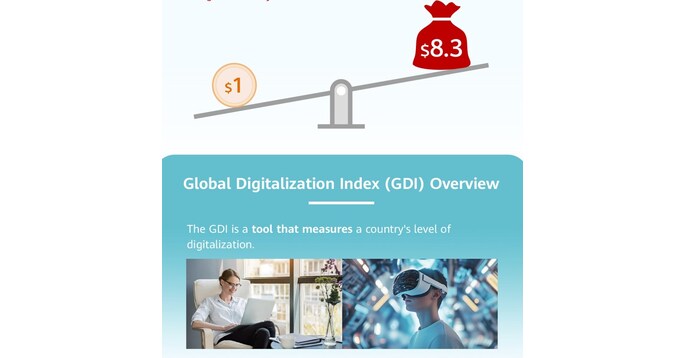
At GITEX GLOBAL 2024, Huawei presented a significant article titled "The Digital Dividend - ICT Maturity Fuels Economic Growth," which underscores the critical role of digital technologies in shaping the global economy. The article highlights the increasing intertwining of physical and digital worlds, driven by advancements in artificial intelligence (AI), 5G-A, and cloud computing. It predicts that digitalization will account for 70% of global economic growth over the next five years, emphasizing the urgency for nations to adopt digital strategies [a5c37242].
Currently, over 170 countries have established national strategies aimed at AI-driven digital transformation. The Global Digitalization Index (GDI) now includes 77 countries, which collectively represent 93% of the world's GDP. Among these, frontrunners such as the United States, China, and Singapore are leading in digital maturity, showcasing the benefits of early investment in digital infrastructure [a5c37242].
The article also reveals a striking investment growth ratio from 2019 to 2023, which stands at 18:3:1 for frontrunners, adopters, and starters in digital transformation. This indicates that for every US$1 invested in digital transformation, there is an impressive return of US$8.3. Furthermore, frontrunners experience a GDP per capita increase of US$945 for each point gained in the GDI score [a5c37242].
In terms of regional developments, Indonesia's digital economy reached US$82 billion in 2023 and is projected to exceed US$210 billion by 2030. Meanwhile, Mexico plans to establish 73 new data centers by 2029 to enhance its GDP and create job opportunities [a5c37242].
The emergence of technologies such as quantum computing promises to further accelerate economic growth. The decisions made regarding digital investments will significantly shape the future economic trajectories of nations, highlighting the importance of strategic planning in the digital age [a5c37242].